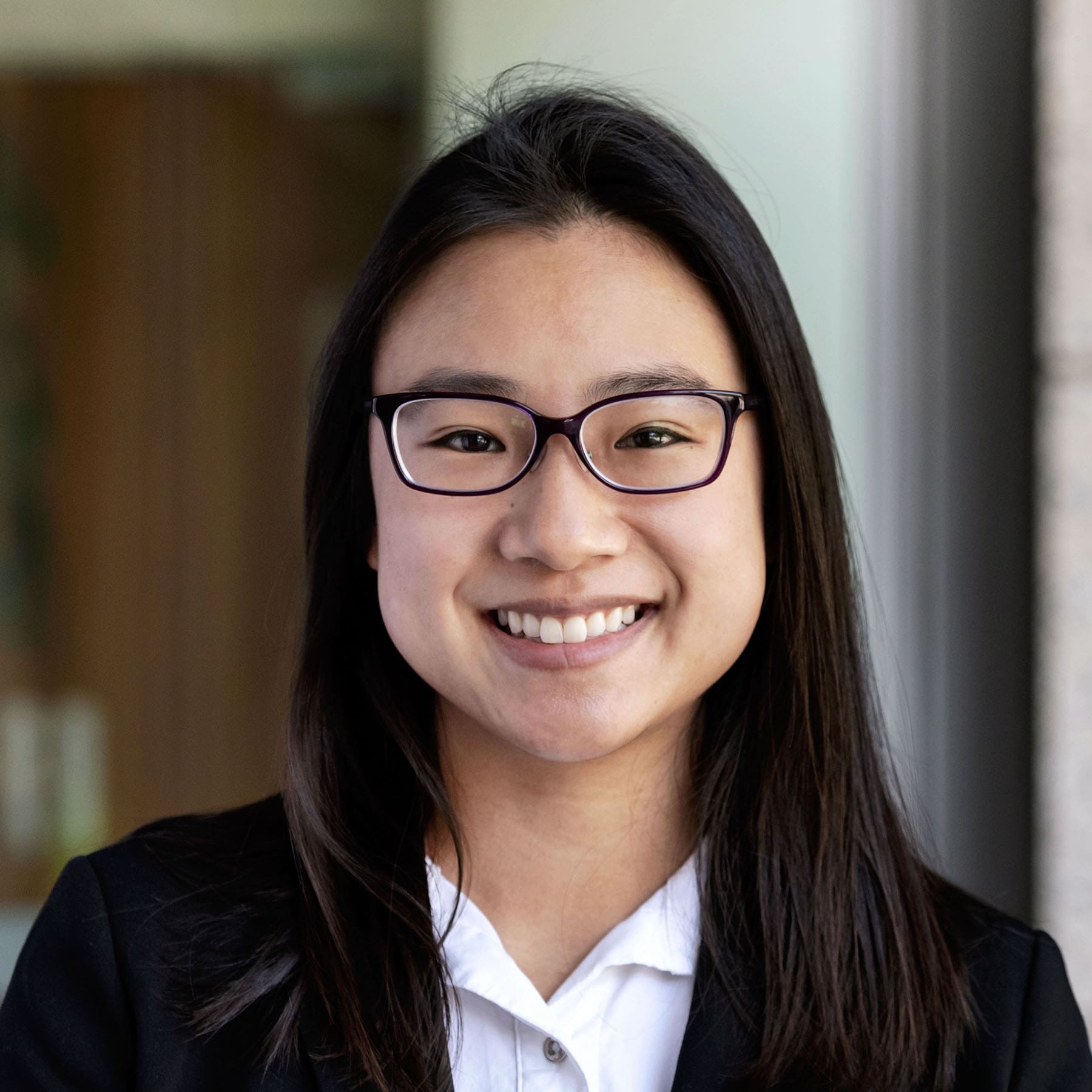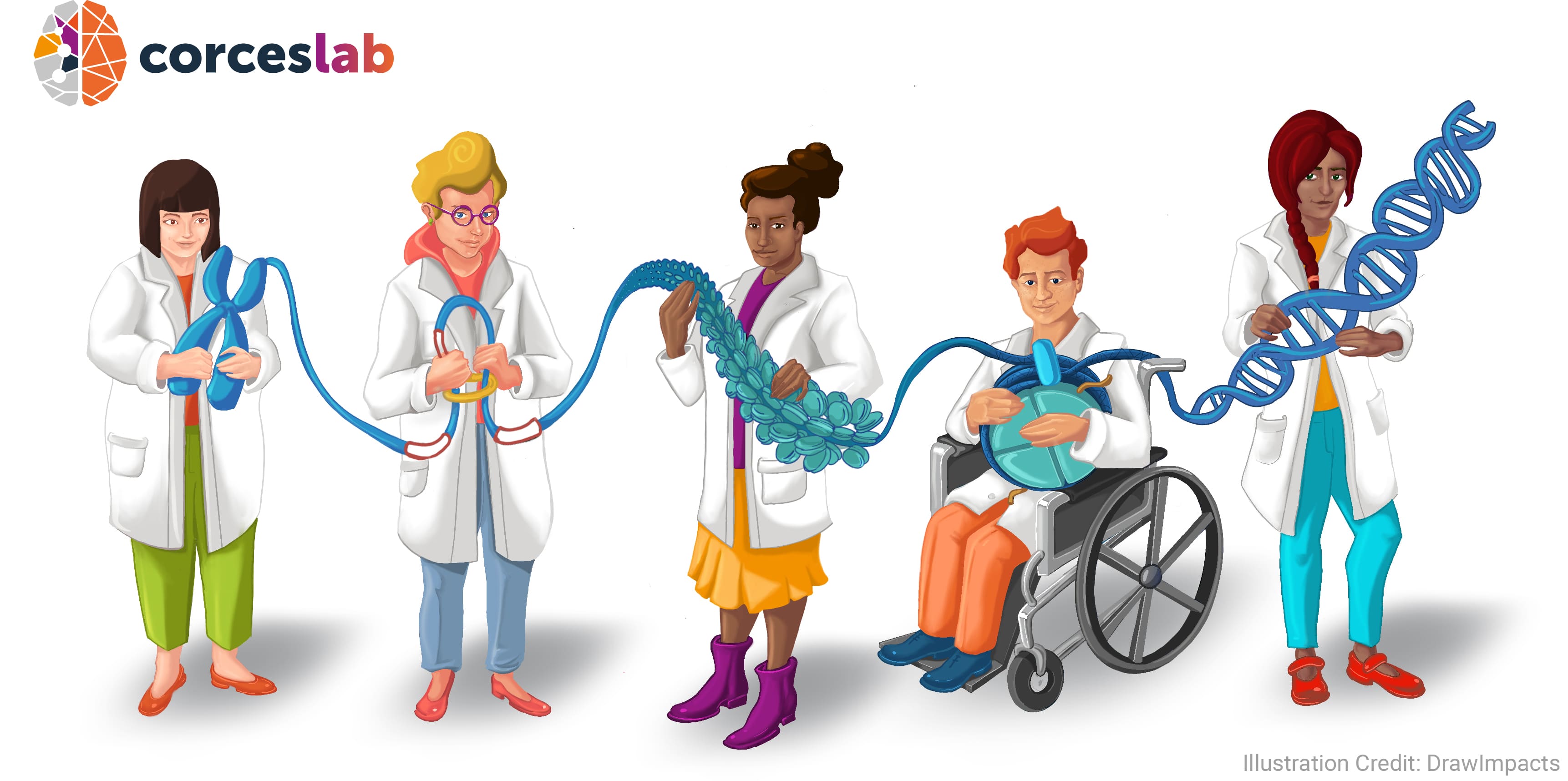
Welcome to the Corces Lab!
In the Corces lab, we work together to address important unanswered scientific questions. We believe in community as a basis for success and we strive to create an atmosphere where anyone can thrive and be themselves. We understand that everyone approaches science from a different set of personal and academic experiences and that the greatest progress is made when each individual member of our team is supported by those around them. We engage in our community to both educate others about the work that we do and to provide research opportunities for individuals who otherwise may not consider a career in science as a viable option. We prioritize mentorship, scholarship, and collaboration with the goal of improving human health and leaving the world a better place than when we found it.
Interested in joining?
The lab is always looking for talented and motivated members (space permitting). If you are a PhD student interested in rotating or a postdoctoral fellow applicant interested in joining, email Ryan at ryan.corces (at) gladstone.ucsf.edu. Highly accomplished postdoctoral fellow applicants are encouraged to apply to the NOMIS-Gladstone Fellowship program. This interdisciplinary training and research program offers exceptional postdoctoral scientists the freedom to address big unanswered questions at the intersection of two or more scientific disciplines.
See more photos here.
Lab Members
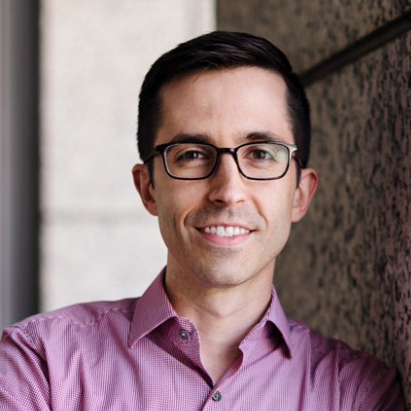
Ryan Corces, PhD
he/him/his
Principal Investigator
ryan.corces (at) gladstone.ucsf.edu
Google Scholar
ORCID
@doctorcorces
I graduated from Princeton University in 2008 with a major in Molecular Biology and a minor in Computer Science. While at Princeton, I worked under the mentorship of Coleen Murphy, studying C. elegans aging. During the summers I had relatively foundational scientific experiences studying learning and memory (with Cristina Alberini), and epigenetics (with Or Gozani).
After graduation, I spent a year living with family in Spain and teaching science to bilingual elementary schools students. In 2009, I started my Ph.D. in the Cancer Biology program at Stanford University under the mentorship of Ravi Majeti. Together with Max Jan and Thomas Snyder, we provided the first genetic and cellular proof that AML evolves from sequential acquisition of mutations in a hematopoietic stem cell. We went on to identify patterns to this mutational evolution, with mutations in epigenetic modifiers such as DNMT3A or TET2 occurring universally during the early “pre-leukemic” phase of the disease.
These findings led me to pursue postdoctoral training in epigenetics with Howard Chang at Stanford University. With Jason Buenrostro, we applied the assay for transposase-accessible chromatin using sequencing (ATAC-seq) to understand normal hematopoietic differentiation and leukemic transformation. This highlighted the utility of this technology for understanding complex cellular processes and we subsequently applied ATAC-seq to a cohort of 410 different tumor samples spanning 23 cancer types in collaboration with The Cancer Genome Atlas.
At about the half-way point of my postdoctoral work, I switched gears to study the genetic and epigenetic underpinnings of neurodegenerative diseases. Co-mentored by Thomas Montine, I used multi-omic epigenetic approaches to dissect the role of inherited variation in Alzheimer’s and Parkinson’s disease. This work serves as the launching point of the lab, driving our interest in using the epigenome to better understand neurological disease.
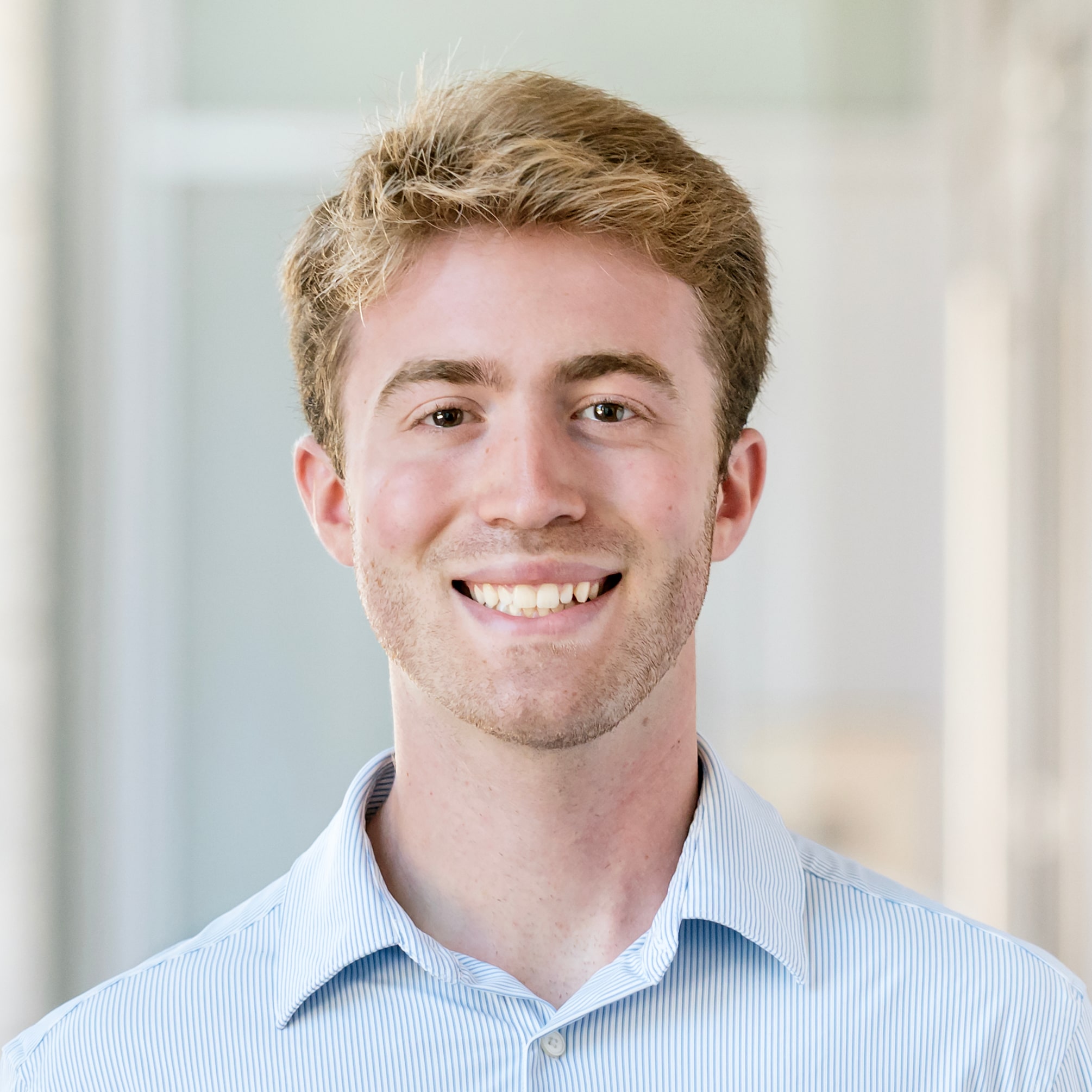
David Aley
he/him/his
UCSF PhD Student (Neuroscience)
david.aley (at) gladstone.ucsf.edu
Google Scholar
ORCID
I grew up in Montclair, NJ, and later moved to New England to study computational neuroscience and statistics at Harvard College. As an undergraduate, I worked in the labs of Dr. Jeff Lichtman and Dr. Florian Engert, mapping human and larval zebrafish connectomes to explore the structural principles of brain organization. I then shifted my focus to motor systems neuroscience in the lab of Dr. Bence Ölveczky, using statistical modeling to probe how neurons in the rodent basal ganglia flexibly adapt over time to support learning. After graduating in 2024, I moved to the West Coast to begin my PhD in neuroscience at UCSF. I’m now applying my interests in neuroscience and statistics to questions in neurodegenerative disease and genomics. In the Corces Lab, I plan to leverage single-cell analysis and machine learning to investigate cell type-specific epigenetic mechanisms underlying Alzheimer’s Disease. Outside of the lab, I love climbing mountains, seeing live music, and trying (but occasionally succeeding) to solve NYTimes crosswords.
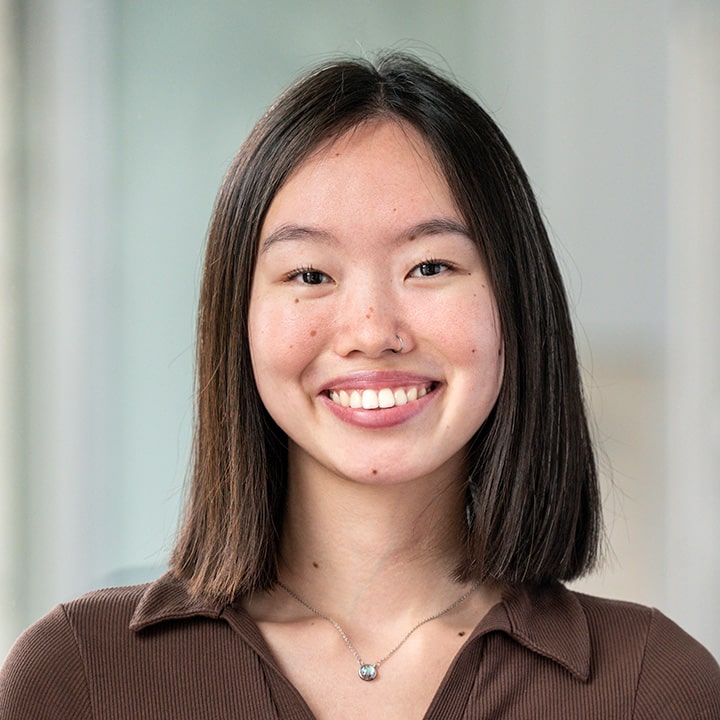
Serena Chang
Staff Research Associate
Serena.chang (at) gladstone.ucsf.edu
I grew up in the Bay Area and studied Biochemistry and General Biology as an undergraduate at the University of California, San Diego. During my time there, I joined Dr. Derek Welsbie’s ophthalmology lab focusing on the development of gene therapies/small molecules to mitigate degeneration in retinal ganglion cells (RGCs) with hopes for vision restoration in glaucoma patients. I had the opportunity to design plasmid constructs for CRISPR-Cas9 gene editing and to work on optimizing the differentiation of human STEM cells into RGCs. In my final quarter as an undergraduate, I was introduced to and amazed by the field of epigenetics which led me to join the Corces Lab where I could dive further into epigenomic profiling of major neurodegenerative diseases. When I’m not in lab, I like crocheting tiny plushies and trying new coffee places.
I grew up in the Bay Area, then moved to the midwest to study Neuroscience and Psychological & Brain Sciences at Washington University in St. Louis. I joined the lab of Yehuda Ben-Shahar and discovered that neuron-specific knockdown of one of the causative genes for Williams Syndrome—a rare developmental condition characterized by hyper-social behaviors—has an evolutionarily conserved effect, altering protein translation and social behavior in Drosophila melanogaster. After graduating in 2019 and continuing in the lab for a year as a technician and lab manager, I joined the Biomedical Sciences Program at UCSF to gain experience with more directly translational neuroscience research. In the Corces Lab, I am studying common noncoding genetic variants associated with Parkinson’s and Alzheimer’s Disease. I aim to understand the cell type-specific effects of these variants and how they drive susceptibility to disease. Some of my efforts include analyzing single-nucleus ATAC-seq from postmortem human brain samples, conducting functional genomics assays such as MPRA and CRISPRi in vitro, and generating CRISPR-edited hiPSC-derived models of brain cell types to validate our high-throughput results. Outside of the lab, I can be found taking long walks with an iced coffee, hiking through beautiful Californian landscapes, or working on my crochet small business.
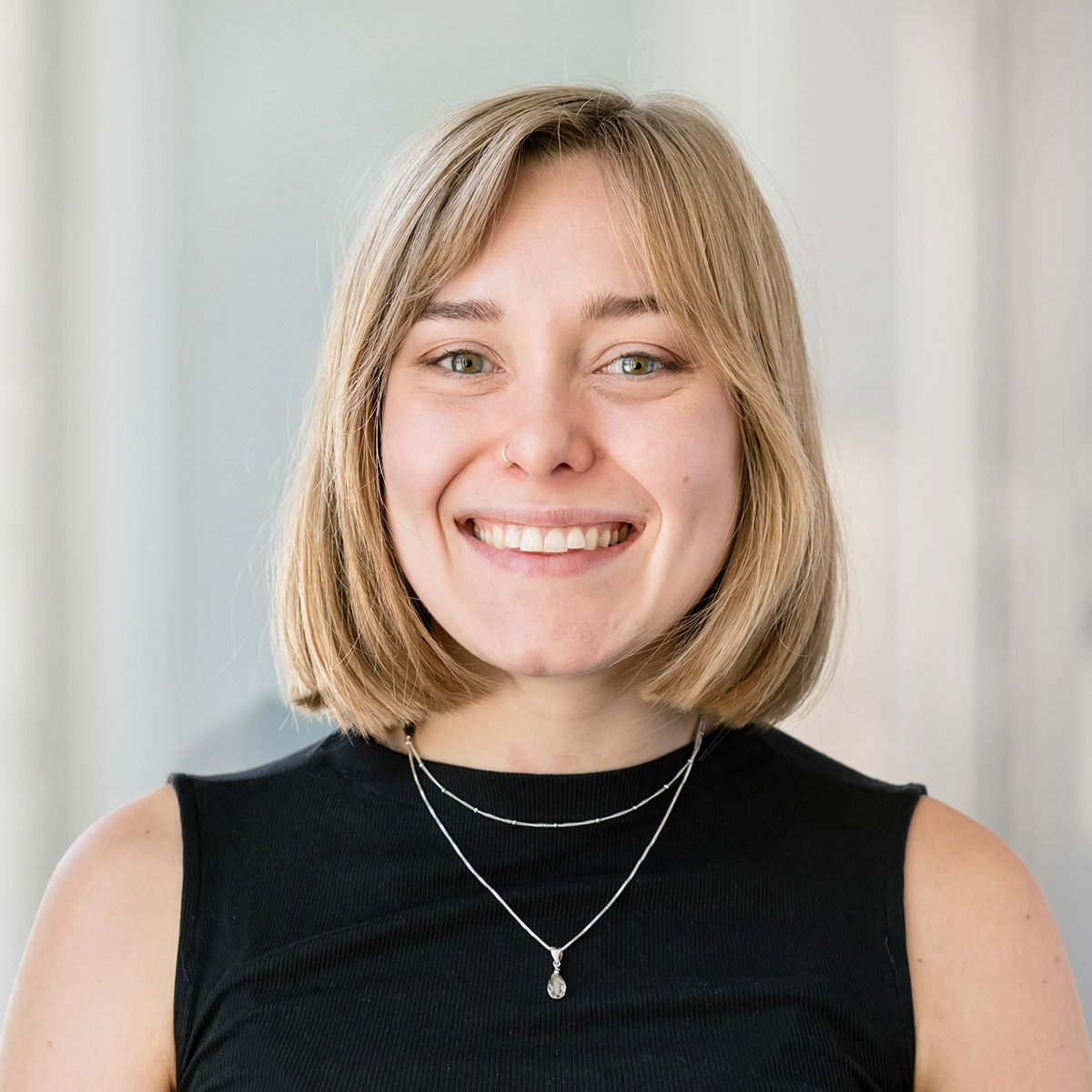
Leah DeFlitch
she/her/hers
UCSF PhD Student (Neuroscience)
leah.deflitch (at) gladstone.ucsf.edu
ORCID
I grew up in Pittsburgh, PA, and stayed in-state to study Cellular & Molecular Neuroscience at Temple University in Philadelphia. During my time as an undergraduate, I worked under the mentorship of Dr. Susan Patterson to characterize microglial responses to immune challenge in aged animals. I later joined Dr. Shin Kang’s lab for my senior thesis work, investigating adult oligodendrogenesis in the mouse hippocampus. After graduating in 2021, I worked as a research assistant in the lab of Dr. Ethan Goldberg at the Children’s Hospital of Philadelphia/University of Pennsylvania. Here, I used stem cell models to study neurodevelopmental diseases (and learned why neuroscientists also like neurons!). I moved across the country in 2023 to start my PhD in Neuroscience at UCSF, aiming to combine my background in iPSC systems with new genetic approaches. In the Corces lab, I plan to combine genomic profiling with functional assays to investigate the mechanisms underlying Alzheimer’s disease. Outside of pipetting, I love running far distances, baking tall cakes, and watching the occasional Penguins hockey game.
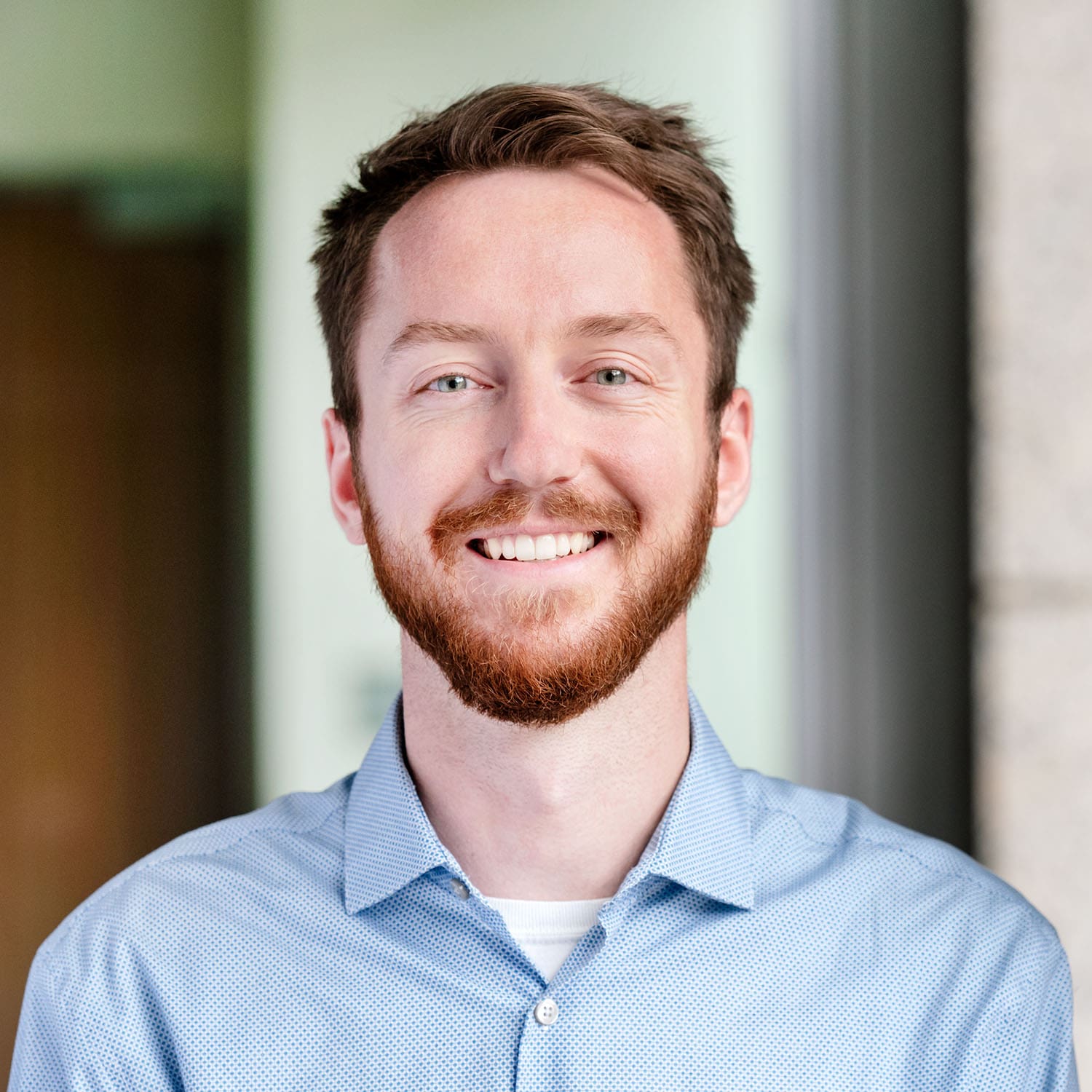
Zach Gardell
he/him/his
UCSF PhD Student (BMS)
zach.gardell (at) gladstone.ucsf.edu
ORCID
@ZachGardell
Growing up in rural Rhode Island, I was raised in the outdoors and turned this into a passion for biology with the help of dedicated early educators. Deciding to make a career out of this, I made the trek to Providence to study Biochemistry and Molecular Biology at Brown University. There, I began my journey in research in the lab of Ashley Webb, investigating how the Forkhead Box O family of transcription factors (FOXOs) regulate stem cell homeostasis in the brain. I concurrently examined this functionality under physiological and pathological conditions, focusing the majority of my efforts on investigating a role for FOXOs in the maintenance of cancer stem cell quiescence in the context of high-grade brain cancer. Wanting to continue research on human disease, I switched coasts after graduation to pursue my PhD in the Biomedical Sciences Program at UCSF. Here, as a member of the Corces Lab, I aim to pair multi-omics with organoid and iPSC-based model systems to pinpoint and validate the epigenetic underpinnings driving AD and PD. In particular, I am interested in the interplay between such drivers and their contextual relationships in a cell-type and cell-state specific manner. Outside of lab, you’ll find me working with UCSF’s Science Education Partnership, exploring new ways to consume coffee, or making my way to a beach or a mountain.
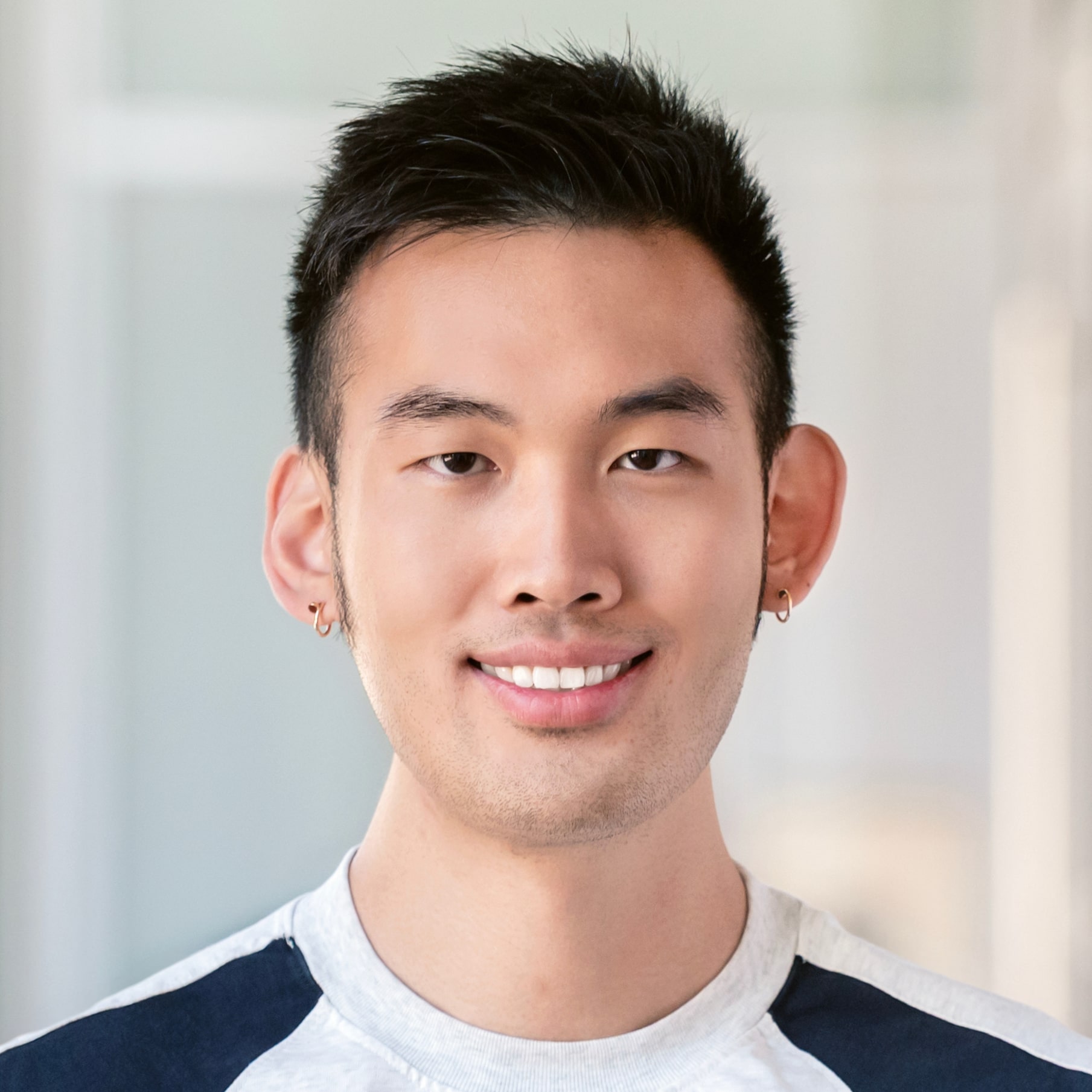
Zhongyi (James) Guo
he/him/his
Staff Research Associate
james.guo (at) gladstone.ucsf.edu
Google Scholar
@zhongy1guo
https://jg1andonly.github.io/
I grew up in Wuxi, China and came to the United States for education. I earned a BS in Statistics and Biology from Cornell and an MS in Epidemiology and Clinical Research from Stanford. My research focuses on applying AI & Statistics to study -omics and communicating results through clear scientific writing and effective visualizations. I previously worked in lab of Dr. Anshul Kundaje, gaining valuable technical and teamwork experience. Outside of work, I enjoy swimming, working out in the gym, relaxing on the grass, and sleeping.
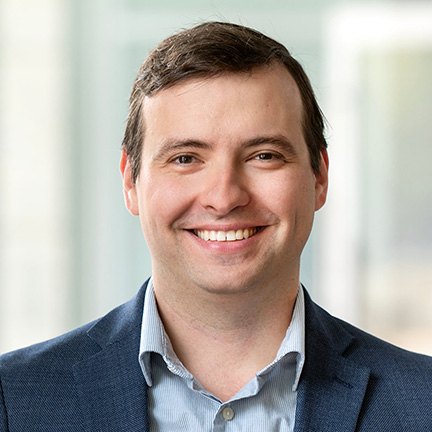
Anthony Haunt (Raus), PhD
he/him/his
Postdoctoral Fellow
anthony.haunt (at) gladstone.ucsf.edu
ORCID
Originally from Sacramento California, I studied Biology at the University of California, Irvine. My undergraduate research included developing drug delivery systems using exosomes and self-assembling acid-cleavable nanoparticles. Under the supervision of Professor Autumn Ivy, MD, PhD, I completed my PhD. My research focused on answering the question, “how does exercise in early life improve learning and memory?” My investigation, which leveraged bulk CUT&RUN and RNA sequencing techniques, discovered support for a mechanism of epigenetic priming. Along the way, I developed a novel transgenic mouse line and a novel technique, SIT, for the cell-specific simultaneous isolation of nuclei and RNA from a single homogenate. I am excited to investigate memory at the other end of the life-cycle as part of the Corces Lab. I want to leverage multi-omic and single-cell sequencing techniques and bioinformatics tools to understand how the epigenome and the environment influence neurodegenerative diseases, including Alzheimer’s and Frontotemporal Dementia. I also enjoy swing dancing, cooking, scootering, art, hiking, video games, board games, and card games.
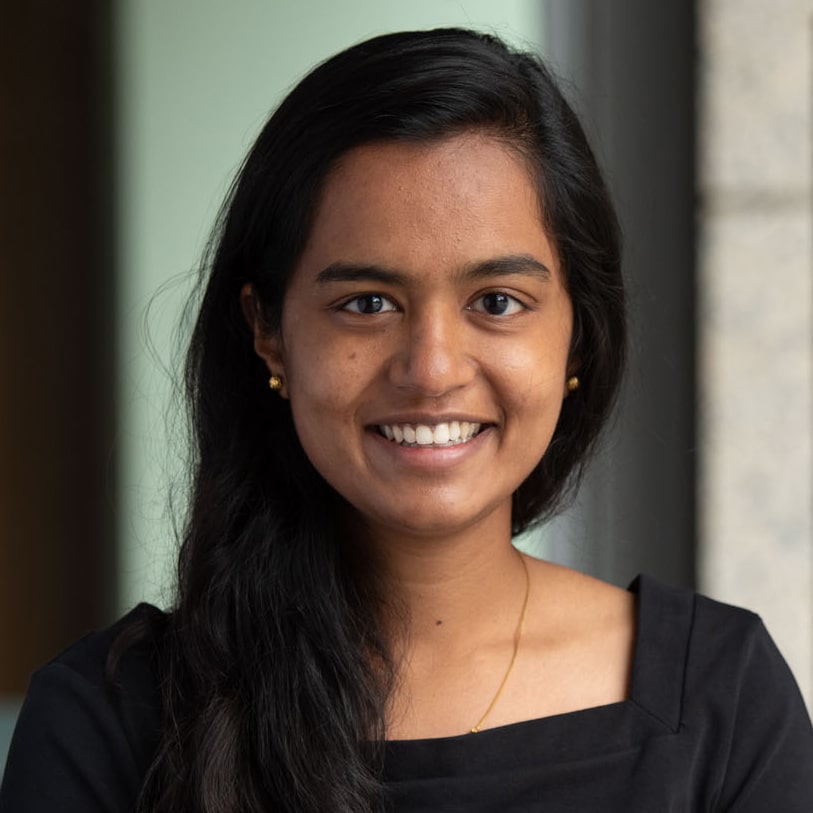
Shreya Menon
UCSF MSTP Student (BMI)
shreya.menon (at) gladstone.ucsf.edu
I grew up in Ann Arbor, MI and moved to the East Coast to pursue my undergraduate degree from Harvard College, concentrating in mathematics. While there, under the mentorship of Dr. Wesley Cain, I studied dynamical systems, specifically in surveying approaches for analyzing delay-induced stability and instability. I also had the opportunity to do clinical cytogenetics research in Dr. Cynthia Morton’s lab where we sought to better understand position effects and balanced chromosomal abnormalities. In 2020, I moved across the country to start in the Medical Scientist Training Program at UCSF. In graduate school, I hope to bring together my background in mathematics with my interest in genetics to use and develop analytical techniques to help better understand how the epigenome influences disease pathology. Outside of the lab, I enjoy trying new foods, going for long walks, and baking.
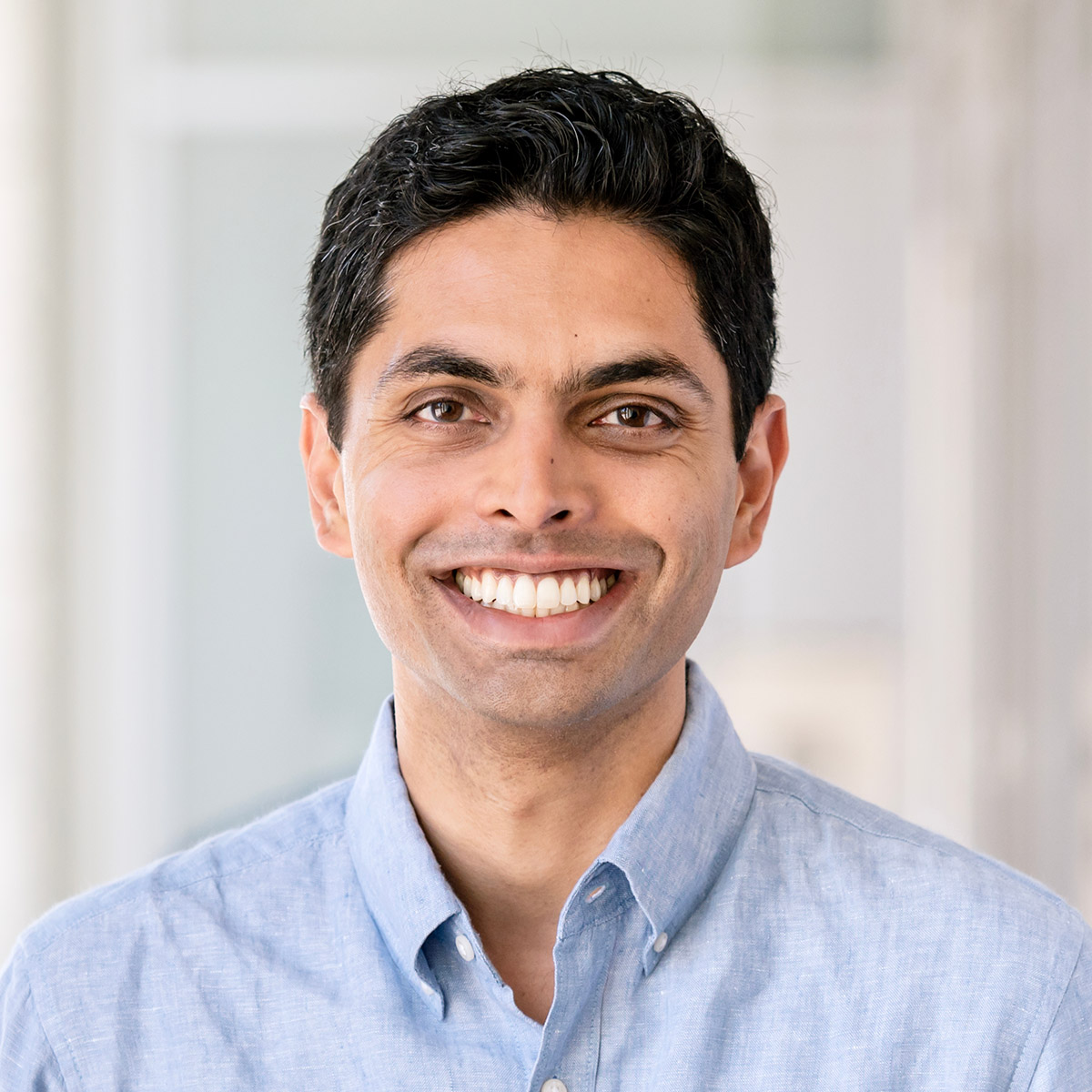
Sachin Patel, MD, PhD
Clinical Fellow / Postdoctoral Fellow
sachin.patel (at) gladstone.ucsf.edu
Google Scholar
I grew up in Anaheim, California (home of the Angels!) and moved to the east coast for my undergraduate and graduate training. I graduated from Harvard with a major in Chemical and Physical Biology, and subsequently went on to complete an MD/PhD there as well. My PhD was in Biological and Biomedical Sciences, with a focus on developmental and stem cell biology. I worked in the lab of Fernando Camargo, developing and deploying in vivo cell barcoding technologies to understand how blood is organized and functions at a single cell level. Unexpectedly, once back in medical school, I developed a growing interest in ophthalmology, which has led me back to California for residency in ophthalmology at UCSF. As part of the Corces lab, I hope to leverage new and emerging single cell technologies to better understand how certain eye diseases, including glaucoma, develop, with the goal of informing new therapeutics. Outside of lab, I enjoy cycling around various spots in the Bay, and playing and watching basketball and soccer.
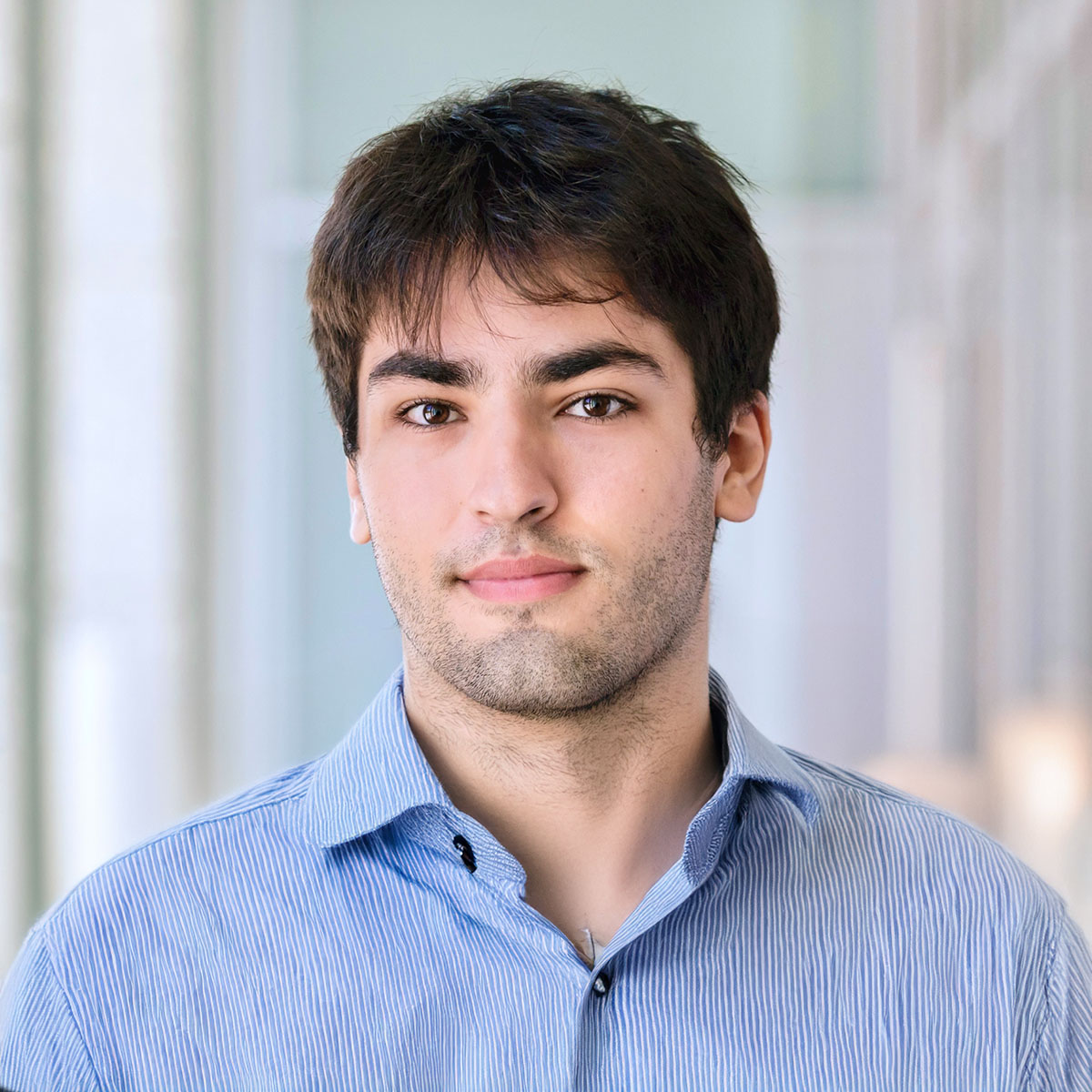
Vitto Resnick
Staff Research Associate
vitto.resnick (at) gladstone.ucsf.edu
I grew up in the San Fernando Valley (aka the Valley) in Los Angeles, CA and went to the University of California, Berkeley to pursue degrees in Chemical Biology (Concentration: Computational Chemistry), Psychology, Molecular & Cell Biology (Emphasis: Neurobiology), and Nutritional Sciences (Emphasis: Physiology & Metabolism). While there, I developed an interest in the pathology of and therapeutic approaches for neurodegenerative diseases. In Dr. John Flannery’s lab, I developed three novel optogenetic therapies for retinal degeneration by targeting bipolar cells for transgenic expression of high-performance synthetic opsins, and I assessed vision restoration in mouse models of retinal degeneration through behavioral assays. After graduating in 2024, I joined the Corces Lab to study neurodegenerative diseases via single-cell multiomics approaches to epigenetic profiling. Outside of lab, I enjoy powerlifting, playing tennis, studying foreign languages, writing poetry, and exploring new ways to make coffee.
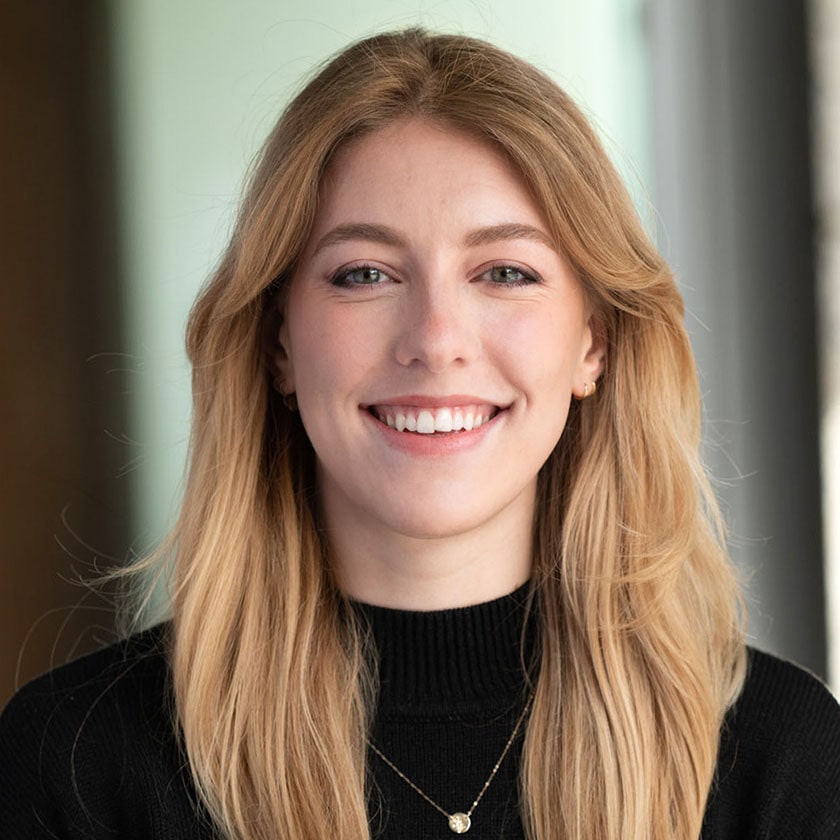
Cathrine Sant (Petersen)
she/her/hers
Postdoctoral Fellow
Co-mentor - Lennart Mucke
cathrine.sant (at) gladstone.ucsf.edu
Google Scholar
@cathrine_sant
I was born in Denmark and moved to the U.S. when I was seven, growing up in the Bay Area. I studied Statistics and Molecular & Cell Biology at the University of California, Berkeley. While an undergraduate, I commuted across the bay to work at the UCSF Memory and Aging Center under the mentorship of Lea T. Grinberg, studying neuropathological alterations in atypical clinical variants of Alzheimer’s disease using postmortem human tissue. There, I developed a lasting interest in the factors that influence the clinical progression of neurodegenerative diseases. After graduation, I spent half a year traveling before starting my PhD in the Neuroscience Program at UCSF in 2019. During my PhD, I developed a new clustering method for single-cell data, CHOIR, that uses permutation testing to identify biologically distinct cell types and states. As a postdoc, I am using single-cell data to study the etiology of cognitive decline and neural network dysfunction in Alzheimer’s disease, co-advised by Ryan Corces and Lennart Mucke.
Alumni
| Name | Years in Lab | Position in Lab | Subsequent Position |
|---|---|---|---|
| Soumya Kundu | 2020-2025 | Stanford PhD Student (CS) | ML Scientist, Relation Therapeutics |
| Aayushi Shah | 2023-2025 | Staff Research Associate | PhD Student, Stanford PhD Program in Microbiology and Immunology |
| Adam Turner, PhD | 2022-2025 | Project Manager | Project Manager, Broad Institute |
| Alia Johnson | 2022-2024 | Staff Research Associate | PhD Student, Duke PhD Program in Genetics and Genomics |
| Lucas Kampman | 2020-2023 | Staff Research Associate | PhD Student, UW PhD Program in Molecular and Cellular Biology |
| Dayoung Kim | 2022-2023 | Visiting PhD Student | PhD Student, UNIST Korea |
| Alex Lan | 2021-2023 | High School Student | Undergraduate Student, Yale University |
| Gabriela Reyes | 2023 | Summer Intern | Undergraduate Student, Montgomery College |
| Heather Chang | 2022-2023 | Staff Research Associate | PhD Student, Harvard PhD Program in Biological and Biomedical Sciences |
| Paulina Paiz | 2021-2023 | PROPEL Scholar and Staff Research Associate | Masters Student, Stanford MS Program in Biomedical Data Science |
| Courtney Colston | 2022-2023 | Staff Research Associate | Hospice administrator, Suncrest Hospice |
| Fiorella Grandi, PhD | 2020-2022 | Postdoctoral Fellow | Postdoctoral Fellow, Centre de Recherche en Myologie |
| Hailey Modi | 2020-2022 | Staff Research Associate | PhD Student, WashU PhD Program in Biology |
| Sean Dailey | 2020-2022 | Administrative Assistant | Masters Student, Stanford MS Program in Human Genetics & Genetic Counseling |
Rotation Students
| Name | Program | Year / Quarter | Thesis Lab |
|---|---|---|---|
| Sanjay Rangavajjhala | BMI | 2024-2025, Spring | Gabi Fragiadakis |
| Zoe Chen | BMI | 2024-2025, Winter | Yin Shen |
| Vishvak Subramanyam | BMI | 2024-2025, Fall | Hani Goodarzi |
| Ashvin Ravi | BMI | 2023-2024, Winter | Tony Capra |
| Maddie Urbanek | BMS | 2022-2023, Winter | Cathryn Cadwell |
| Madison Lotstein | BMS | 2022-2023, Winter | Gabi Fragiadakis |
| Mai Nobuhara | PSPG | 2020-2021, Spring | Nadav Ahituv |
| Indigo Rose | NS | 2020-2021, Winter | Martin Kampmann |
| Rachel O'Sullivan | NS | 2020-2021, Winter | Mazen Kheirbek |
